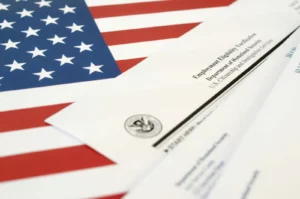Share
HR professionals are tasked with keeping up to date with federal agencies and legislation that affect employers and their employees. In recent months, there has been a flurry of updates regarding various proposed rules, including:
- DOL’s overtime threshold updates
- FTC’s ban of non-compete agreements
- NLRB’s joint employer rule
- DOL guidance for AI in the workplace
- EEOC’s new workplace harassment guidance
- OSHA Heat Injury and Illness Prevention Plan
- the proposed American Privacy Rights Act
Continued legal challenges for DOL Overtime Rule
A new overtime rule from the Department of Labor went into effect on July 1, 2024, but as usual, legal challenges are still working their way through the courts.
The new overtime ruling raises the minimum salary for exempt workers and schedules future increases:
- Before July 1, 2024, the standard salary level was $648 per week.
- Since July 1, 2024, the standard salary level has risen to $844 per week.
- On January 1, 2025, the level is scheduled to rise to $1,128 per week.
- On July 1, 2027 and every 3 years afterward, the level should be reassessed and updated.
Multiple court rulings affected the new mandate within a week of its effective date, effectively halting its enforcement for the time being. One upheld the rule and the other ruling said that it shouldn’t apply to Texas state employees. A third lawsuit in Plano, Texas is asking for a broader injunction, arguing that the rule violates the Fair Labor Standards Act and the Administrative Procedure Act.
What does that mean for your business? Consult with your own legal counsel as you update your policies and ensure proper classification of exempt employees, recognizing that some managers may lose overtime exemption because of salary. Watch for upcoming changes as legal challenges might overturn or modify this rule.
FTC Non-Compete Ban still in limbo
Several states (including California and North Dakota) have already banned non-compete agreements. Proposed earlier this year, a new rule from the Federal Trade Commission (FTC) is looking to expand that ban nationwide, starting September 2024.
Non-competes will still be allowed in limited circumstances like the sale of a business. If your business has used non-competes, you will need to prepare by:
- Sending out notices to current and former employees, letting them know that the non-compete is null and void.
- Review your policies and other employee documentation, in case there’s language that might be interpreted as similar to a non-compete.
In early July, a judge in Texas granted limited injunction to the plaintiffs in that case, but a more decisive ruling is expected before the end of August. Many businesses are watching to see how the legal battle unfolds. If your business sends out a notice that non-compete agreements with your company are “null and void” too soon, and the federal ban is overturned in the courts, then you may not be able to retract your nullification.
Businesses can still use NDAs and similar trade agreements, so you’ll want to consult with your legal team. To learn more about the differences between these different agreements, please read our previous blog: HR Security: NDAs, Confidentiality Agreements, and Non-Compete Clauses.
NLRB Joint Employer Rule overruled, appealed, then withdrawn
In October of 2023, the National Labor Relations Board updated the standard for determining joint employer status. Congress passed a Congressional Review Act in opposition, but it was vetoed by the President. An attempt to overturn the veto failed in the House.
In March of this year, another U.S. District Court in Texas struck down the new standard, effectively returning to the 2020 standard for joint employers. Then in May, the NLRB appealed the judge’s injunction, but voluntarily dismissed its own appeal just two months later.
In a July 19 court filing for the case, the NLRB said that it would “like the opportunity to further consider the issues identified in the district court’s opinion” and that dismissal would “allow it to consider options for addressing the outstanding joint employer matters before it.”
The new rule would have expanded the definition of employer to include businesses with the right to control any of the employees working conditions, which had sweeping implications for franchises and contractors.
As the proposed rule continues to work its way through the judicial system, it is still best to review your policies around contractors, third-party vendors, temps, and other outside workers, clarifying the boundaries between other contractors and employees.
DOL issues guidance for AI in the workplace
In October of 2023, an Executive Order called for the “Safe, Secure, and Trustworthy Development and Use of Artificial Intelligence”. Six months later, the Department of Labor issued Field Assistance Bulletin No. 2024-1 to clarify limits on how AI can be used by employers to monitor workers.
Under the FLSA, the report stated, “Time spent working must be paid regardless of the level of productivity or performance of the employee.” Accordingly, AI monitoring should not be used to dock employee pay because of productivity or short breaks.
FMLA violations may occur if AI undercounts hours or inappropriately denies leave requests. Employers using AI are still responsible for any compliance issues caused by insufficient human oversight. Clarify your AI policies to reduce worker anxiety and prevent compliance issues.
EEOC announces Workplace Harassment Guidance
Back in 2020, the Supreme Court’s Bostock v. Clayton County decision affirmed that gender identity and orientation were included under Title VII of the Civil Rights Act. In April of 2024, the EEOC released their Enforcement Guidance on Harassment in the Workplace. The official guidance reviews Title VII as it applies to harassment in the present day, including remote and online interaction with coworkers and LGBTQ+ awareness.
Misgendering someone or “outing” them can be forms of harassment based on sexual orientation and gender identity. Teasing a coworker about genetic test results or family medical history could violate the Genetic Information Nondiscrimination Act (GINA). Update your company harassment policy to acknowledge issues like gender, orientation, and GINA. Make your workplace culture less toxic with consistent policies that apply to everyone.
OSHA protects workers with Heat Injury and Illness Prevention Plan
OSHA recently proposed a new rule requiring employers to develop a Heat Injury and Illness Prevention Plan. After a period for written comments, OSHA is expected to invite input at a public hearing. If and when it’s finally approved, employers will be required to develop plans to evaluate and mitigate heat risks.
Businesses must have plans and policies in place to respond to high temperatures. The standards would not affect office workers whose air conditioning keeps temperatures below 80°F. Indoor work areas that get hotter than 120°F need to have clearly posted warnings. Other employers would be required to watch out for workers unaccustomed to working in the heat. Depending on the temperatures reached, rest breaks and water should be made available.
Even before heat injury plans become required, you can still develop your own plan as appropriate. Everyone could use training (and an occasional refresher) on identifying medical emergencies like heatstroke in their colleagues.
Bipartisan support for proposed American Privacy Rights Act
Introduced as a draft in April 2024, the American Privacy Rights Act (APRA) has at least some degree of bipartisan support in both chambers of Congress. Instead of the patchwork of state regulations, APRA would clarify data privacy and AI decision-making standards at the federal level. In the initial proposal, individual workers and job applicants will be given the option to “opt out” of the use of AI, but it’s unclear how that would work in specific scenarios.
The legislation currently targets large data holders and “high-impact” social media companies with over $3 billion annual revenue and over 300 million users. The APRA is likely to see significant changes in the months ahead. It might simply get bogged down like the American Data Privacy and Protection Act (ADPPA) and similar legislation in the past. Watch out for changing legislation as you leverage AI to achieve HR goals.
Discover how Netchex can help your company stay up-to-date and in compliance with various HR rules + employee and workplace regulations:
Related articles

Overtime Overruled: 2024 Overtime Rule Vacated, Reverts to 2019 Threshold

HR Legislation: 2024 Updates to Independent Contractors and Joint Employer Rules

DOL Proposes New Overtime Rules: What to Know and How to Prepare

